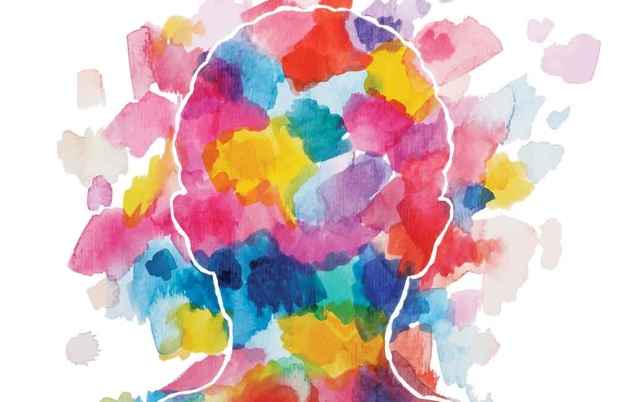At 22, Robin did the hardest thing she had ever done in her life: she confronted her fears. Her fear of God, her fear of unintentionally causing others harm, and her fear of germs—all caused by obsessive compulsive disorder (OCD)—had robbed her of her teen years and she wasn’t going to let the illness destroy her life any longer.
Robin was one of the first patients admitted into the Obsessive Compulsive Disorder Institute (OCDI) at McLean Hospital upon its opening in February 1997, and 20 years later, she credits the program with changing her life.
“When Robin came to us, doing intensive residential treatment for OCD was a novel idea,” said Diane Davey, RN, MBA, program director of the OCDI and one of the program’s founding staff members. “We knew that for cases like hers, where outpatient treatment just wasn’t working, a program like the OCDI would be a beacon of light in an otherwise stark reality.”
Robin first developed symptoms of OCD as an adolescent, but didn’t get a diagnosis until she was a teenager. She also learned that her form of OCD had a name—scrupulosity—and it is what caused her to struggle with an extreme fear of being guilty of religious, moral, or ethical failure. By the time she was diagnosed, however, Robin was trapped by the many daily rituals that she believed she needed to complete in order to continue with her day. For example, she could not leave her room until she said the rosary perfectly, which often resulted in her repeating the prayer hundreds of times, because if she had an intrusive thought—or didn’t say it perfectly—she would have to start all over again. Incapable of getting out of the vicious grip of OCD, Robin was not able to lead a normal teenage life and was left feeling isolated, scared, and desperate.
Learn more about Robin’s story in this video celebrating the OCDI’s 20th anniversary
“It was a terrible life, and I knew that if I didn’t find a way to battle the intrusive thoughts that I would eventually stay in that room forever,” said Robin. “I was seeing a therapist who thought that I would be an excellent candidate for the OCDI.”
“Unlike what you see portrayed on TV and in movies, OCD can be a very painful and complex illness,” said Davey. “Treating a patient like Robin requires a comprehensive treatment approach in order to address the underlying causes of its often many symptoms.”
It was during her six-month stay at the OCDI where Robin met other people who had similar experiences, and together, they learned vital coping skills to help them manage their OCD.
In addition to cognitive behavior therapy, Robin also worked one-on-one with a therapist on exposure and response prevention (ERP) therapy—a treatment that required Robin to expose herself to the very thoughts and situations that made her anxious and triggered her obsessive rituals.
“ERP can sound counterintuitive, but what we know from our research is that by exposing the person to their obsessive fears and then working with them not to conduct the physical or mental rituals that they would normally do to counter their anxiety, over time, actually helps the person reduce their compulsions and their anxiety,” said Leslie Shapiro, LICSW, a therapist at the OCDI who worked with Robin two decades ago.
Robin often reflects back on her work with Shapiro and credits her with giving her healthy coping skills that she continues to use today to manage her OCD.
“It was scary—particularly in the beginning when I felt that God would punish me for what I was doing, but as time went on and I was making progress, I realized that for as painful and challenging as the ERPs were, nothing compared to the pain my OCD inflicted on me,” she said. “By the time I left McLean, I felt like I finally found myself and that my true self was allowed to be free—not bogged down and operating strictly from guilt. I was able to lead a life that I honestly never thought I would have.”
Today, Robin still struggles with OCD, but keeps it in check by seeing a therapist regularly and continuing to practice ERP. She recently earned an associate’s degree in Human Services and works as a peer mentor teaching adolescents how to successfully manage their mental illness.
“The OCDI gave me a life, and I am forever grateful for the support and knowledge that program gave me 20 years ago,” said Robin. “I don’t know where I would be if I had not gone to McLean,” said Robin. “I’m not going to say that everything is always wonderful—OCD is often a lifelong illness—but I can absolutely tell you that my life is so much better because of the decision I made.”
Media Requests
Journalist or member of the media? We are available 24/7 for media requests.



